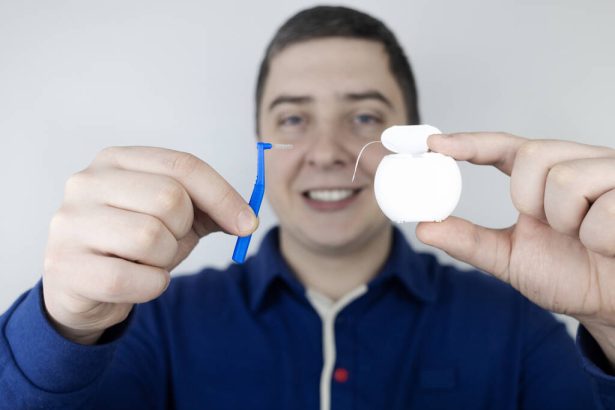Welcome to our latest article addressing habits that drain your energy, energy-draining habits, low-energy habits, and energy-sapping behaviors, which impact your life and well-being in significant ways. Many behaviors, daily routines, and habits can contribute to feeling fatigued, sleepy, and lethargic. At times it can seem daunting to identify the specific factors responsible for your lack of energy.
- The Impact of Sleep Habits on Energy Levels
- The Role of Nutrition in Energy Levels
- Sedentary Lifestyle and Energy Drain
- The Role of Stress in Energy Depletion
- The Influence of Digital Devices on Energy Levels
- How Negative Thoughts and Emotions Impact Energy
- The Impact of Clutter and Disorganization on Energy Levels
- The Energy-Draining Effects of Procrastination
- The Power of Routines in Restoring Energy
- The Importance of Boundaries in Preserving Energy
- The Role of Mindfulness and Self-Care in Energy Restoration
- Nurturing Positive Relationships for Energy Boost
- Conclusion
- FAQ
- What are some common habits that drain your energy?
- How do poor sleep habits affect energy levels?
- How does nutrition impact energy levels?
- Why is a sedentary lifestyle draining for energy?
- How does stress affect energy levels?
- How do digital devices zap energy?
- How do negative thoughts and emotions impact energy?
- How does clutter and disorganization affect energy levels?
- Why does procrastination drain energy?
- How do routines help restore energy?
- Why are boundaries important for preserving energy?
- How does mindfulness and self-care restore energy?
- How do positive relationships impact energy levels?
But today, we will explore the most common culprits responsible for low-energy habits and help you understand their underlying causes. Armed with this knowledge, you can proactively take steps to prevent these habits from depriving you of your vitality. So, let’s delve into our featured sections, examine their root causes, and gain tools and tips to eliminate these energy-zapping habits from our daily lives.
The Impact of Sleep Habits on Energy Levels
Poor sleep habits can be a major culprit behind low energy levels. Quality sleep is essential for replenishing our energy and restoring our vitality. Unfortunately, it is easy to fall into energy-draining routines that can interfere with a restful night’s sleep, leading to daytime fatigue and reduced energy levels.
It is crucial to establish a sleep routine that works for you and stick to it consistently. Here are some habits that zap your energy and interrupt your sleep:
| Energy-Draining Routines | Alternative Energy-Boosting Habits |
|---|---|
| Using electronic devices before bedtime | Reading a book or practicing relaxation techniques before bed |
| Drinking caffeine or alcohol close to bedtime | Drinking herbal tea or water earlier in the evening |
| Irregular sleep routine or inconsistent sleep schedule | Establishing a consistent bedtime routine and sticking to a regular sleep schedule |
Incorporating energy-boosting habits into your sleep routine can help improve the quality of your sleep, leading to increased energy levels during the day. Additionally, consider optimizing your sleep environment by making it comfortable, dark, quiet, and cool, free from distractions such as electronic devices.
The Role of Nutrition in Energy Levels
What we eat and drink can have a significant impact on our energy levels. Certain habits, such as consuming high amounts of processed foods, skipping meals, or not drinking enough water, can drain our energy and leave us feeling sluggish and fatigued. Low-energy habits are all too common in our fast-paced lives, but making healthier choices can help us to feel more energized and alert.
One of the main culprits behind energy-zapping habits is unhealthy eating patterns. For example, foods high in sugar and saturated fats can lead to crashes in energy levels, while skipping meals can also contribute to fatigue and decreased concentration. In contrast, eating a balanced diet that contains plenty of fruits, vegetables, lean proteins, and whole grains can help to provide sustained energy throughout the day.
Another important factor in energy levels is hydration. Dehydration can lead to feelings of fatigue, so it is important to drink plenty of water throughout the day. Additionally, certain beverages, such as those containing caffeine or alcohol, can interfere with sleep quality, which can ultimately lead to decreased energy levels.
When it comes to making healthier choices, it’s not just about what we eat, but also how we eat. Taking the time to enjoy meals mindfully and paying attention to hunger and fullness cues can help us to make better choices and feel more energized throughout the day.
Foods to Boost Energy Levels
| Food | Nutrient Benefits |
|---|---|
| Spinach | Iron, magnesium, vitamin C |
| Salmon | Omega-3 fatty acids, vitamin B12 |
| Almonds | Healthy fats, magnesium, fiber |
| Bananas | Potassium, vitamin C, fiber |
| Quinoa | Protein, fiber, iron |
| Green tea | Caffeine, antioxidants |
Energy-draining habits can have a significant impact on our overall health and well-being. By making simple changes to our eating and drinking habits, we can increase our energy levels and feel more alert and focused throughout the day.
Sedentary Lifestyle and Energy Drain
A sedentary lifestyle can lead to a laundry list of health issues, and low energy levels are one of them. Sitting for long periods can sap your energy, leaving you feeling tired and lethargic. Studies have shown that prolonged sitting is linked to an increased risk of obesity, heart disease, and diabetes, among other conditions.
To combat energy drain, it is essential to incorporate regular movement and physical activity into your daily routine. Even small steps, such as taking a break every hour to stand up and stretch, can make a significant difference. Consider taking short walks throughout the day or joining a fitness class to get your blood pumping and increase your energy levels.
| Symptoms of Sedentary Lifestyle | Effects on Energy Levels |
|---|---|
| Weight gain | Reduces metabolism and energy levels |
| Back, neck, or joint pain | Increases fatigue and reduces mobility |
| Increased risk of chronic diseases | Leads to decreased stamina and energy |
To break the cycle of energy drain, it is crucial to make physical activity a priority in your daily routine. With some simple changes, you can increase your energy levels and improve your overall health and well-being.
The Role of Stress in Energy Depletion
Chronic stress is one of the most significant energy-draining habits, with a variety of negative impacts on your health and well-being. Stress can result from various sources, including work demands, relationship issues, financial pressures, or health concerns. Regardless of its origin, prolonged stress can lead to physical and mental fatigue, reduced productivity, weakened immune function, and even mood disorders.
There are several effective stress-management techniques to decrease stress levels and boost your energy. Engaging in relaxation techniques like meditation, yoga, and deep breathing exercises can help relieve stress and promote mental calmness. Schedule regular exercise routines or engage in calming activities like walking in nature, taking long baths, or getting massages can also reduce stress. Additionally, ensure that you prioritize getting adequate sleep as lack of quality sleep can increase stress and lower energy levels.
““The greatest weapon against stress is our ability to choose one thought over another.” – William James
Reduce your stress levels, restore balance and vitality. Engage in effective stress-management techniques for a more fulfilling and energetic life.
The Influence of Digital Devices on Energy Levels
The ubiquity of smartphones and computers has made them indispensable tools in our daily routines. However, excessive use of digital devices can have energy-draining effects, leaving us feeling depleted and fatigued.
Studies have shown that screen time can disrupt sleep patterns and interfere with the production of melatonin, a hormone that regulates sleep-wake cycles. In addition, constant exposure to social media updates, emails, and notifications can cause cognitive overload and mental exhaustion.
Fortunately, there are ways to maintain a healthy relationship with technology and minimize its energy-sapping behaviors. Here are some strategies to consider:
- Set boundaries: Limit your screen time by setting specific times of the day to check your phone or computer. Avoid using digital devices before bedtime to promote restful sleep.
- Take breaks: Give your eyes and brain a rest by taking regular breaks from your devices. Take a walk, do some stretching, or engage in other activities that don’t involve a screen.
- Practice mindfulness: Be present and fully engage in the activities you enjoy, without distractions from digital devices. This can help reduce stress and energize your mind and body.
- Declutter your digital life: Minimize digital clutter by organizing your inbox, deleting unnecessary files, and unsubscribing from unwanted notifications or emails.
By adopting these habits, you can maintain a healthy relationship with technology and avoid the energy-draining effects of digital overload.
How Negative Thoughts and Emotions Impact Energy
Negative thoughts and emotions are one of the many habits that drain your energy. Such low-energy habits can be detrimental to your physical and mental well-being, causing increased levels of stress and anxiety.
Our self-limiting beliefs and negative self-talk prompt feelings of worry and self-doubt. Such thoughts can drain your energy and lead to low-energy habits, making it difficult to focus on positive things in life.
It is essential to cultivate a positive mindset to overcome these energy-sapping behaviors. Cultivating an optimistic and positive worldview can help shift your focus from the negative self-talk and envision situations in a more positive light. This can help restore your vitality and boost your energy levels.
To counteract negative thoughts and emotions, consider practicing mindfulness and incorporating self-care habits, such as journaling, meditation, or other relaxation techniques. Learning how to manage your emotions can help you feel more energized and productive throughout the day.
“A strong, positive self-image is a power that can change everything for the better.”
Positive Thinking Techniques
Here are a few positive thinking techniques that can help you overcome negative thoughts that lead to low-energy habits:
| Technique | Description |
|---|---|
| Cognitive Restructuring | Practice replacing negative thoughts with positive ones. |
| Gratitude Practice | Take time each day to express gratitude for the good things in your life. |
| Affirmations | Create and repeat positive affirmations to retrain your brain to think positively. |
By adopting these techniques and making them a part of your daily routine, you can transform your mindset and overcome the energy-draining habits that negative thoughts and emotions can produce.
The Impact of Clutter and Disorganization on Energy Levels
Living in a cluttered and disorganized environment can be draining on our energy levels. We have all experienced the feeling of fatigue that sets in when we are surrounded by mess and chaos. This can lead to a lack of productivity, focus, and motivation, leaving us feeling even more depleted and overwhelmed.
Studies have shown that there is a link between disorganization and mental fatigue, with cluttered environments leading to increased stress levels and decreased well-being. When we are surrounded by clutter and disarray, it can be more difficult to relax and recharge, draining us of the energy we need to tackle our tasks.
To combat the energy-draining effect of clutter and disorganization, it is essential to develop a system for keeping your environment tidy and well-organized. This can be achieved through regular decluttering sessions and implementing effective storage solutions that work for you.
Here are some tips to get started:
- Start small: Begin by tackling one room or area at a time to avoid feeling overwhelmed.
- Get rid of what you don’t need: Take a critical look at your belongings and get rid of anything that no longer serves a purpose or brings you joy.
- Create designated spaces: Assign a place for everything and keep things in their designated area to minimize clutter.
- Make it a habit: Take a few minutes each day to tidy up and stay on top of clutter to prevent it from accumulating.
By creating a clean and organized space, you can enhance your energy levels and improve your overall well-being. Remove the clutter and chaos from your life to make room for productivity, creativity, and vitality.
The Energy-Draining Effects of Procrastination
Do you find yourself constantly putting things off until the last minute? Procrastination is a common habit that many of us struggle with, and it can have a draining effect on our energy levels and overall productivity. The longer we put off tasks or responsibilities, the more they weigh on our minds, causing stress and anxiety, which can lead to fatigue and reduced motivation.
One of the reasons we procrastinate is because we view tasks as overwhelming or too challenging. By breaking tasks down into smaller, manageable steps and setting achievable goals, we can reduce feelings of overwhelm and boost our confidence in our ability to complete them.
Another factor that contributes to procrastination is distraction. Digital devices, social media, and other energy-draining habits can divert our attention and sap our energy, making it difficult to focus on the task at hand.
It’s important to be mindful of these low-energy habits and the impact they can have on our motivation and productivity. By identifying our procrastination triggers and developing strategies to overcome them, we can reduce stress and increase our energy reserves.
Strategies for Overcoming Procrastination
Here are some tips for overcoming procrastination and replenishing your energy:
- Break tasks down into smaller steps: By focusing on one small task at a time, we can reduce feelings of overwhelm and increase our sense of accomplishment.
- Set achievable goals: By setting realistic goals, we can increase our motivation and confidence in our ability to complete tasks.
- Eliminate distractions: By minimizing digital distractions, such as turning off notifications or setting dedicated work hours, we can increase our focus and reduce procrastination triggers.
- Practice mindfulness: Mindfulness exercises, such as deep breathing and meditation, can help reduce stress and increase our ability to focus on the present moment.
- Reward yourself: By setting up a reward system for completing tasks, we can increase our motivation and create a positive reinforcement cycle.
By incorporating these strategies into our daily routines, we can overcome procrastination habits and boost our energy levels, increasing our overall productivity and well-being.
The Power of Routines in Restoring Energy
Establishing healthy routines can help restore energy levels and improve overall well-being. By following simple steps to build positive habits, you can replenish your energy reserves and enjoy a more vibrant life.
The first step is to prioritize sleep and maintain consistent sleep patterns. Sleeping for at least 7-8 hours a night can improve energy levels and promote better health. Try to go to bed and wake up at the same time each day, even on weekends, to maintain a regular sleep schedule.
Regular exercise is another key factor in restoring energy levels. Exercise increases oxygen flow to the brain and helps release endorphins, boosting mood and energy. Find a workout routine that works for you, whether it’s jogging, yoga, or weightlifting, and stick to it. Aim for at least 30 minutes of moderate-intensity exercise each day, five times a week.
Mindful practices, such as meditation and deep breathing, can also be effective in restoring energy levels and reducing stress. These practices help calm the mind and relax the body, promoting better sleep and greater overall well-being. Find a quiet space and set aside time each day for mindfulness practices.
By incorporating these routines into your daily life, you can restore your energy levels and enjoy a more vibrant, fulfilling life.
The Importance of Boundaries in Preserving Energy
When it comes to preventing energy drain, setting clear boundaries is crucial. Without boundaries, we can find ourselves overcommitted, overwhelmed, and depleted. Establishing healthy boundaries in various aspects of our lives, such as relationships, work, and personal time, can protect our energy and well-being. Here are some energy-draining habits that can be eliminated by setting clear boundaries:
| Habit | Boundary Solution |
|---|---|
| Overworking | Establishing specific work hours and sticking to them, delegating tasks, and avoiding burnout. |
| Saying Yes to Everything | Learning to say “no” without guilt, assessing priorities before committing, and avoiding overload. |
| Negative Relationships | Limiting contact with toxic people, communicating clearly and assertively, and creating healthy boundaries in all relationships. |
By setting healthy boundaries, we can avoid these energy-zapping habits and preserve our vitality. Boundaries provide a sense of control and empower us to make choices that are in alignment with our needs and values. Remember, saying “no” to others is saying “yes” to our own well-being.
“Daring to set boundaries is about having the courage to love ourselves, even when we risk disappointing others.” – Brené Brown
The Role of Mindfulness and Self-Care in Energy Restoration
Just like sleep and nutrition, mindfulness and self-care practices play a vital role in restoring energy levels. By focusing on self-care and relaxation techniques, we can replenish our energy reserves and promote a more balanced and healthy lifestyle.
Mindfulness exercises, such as meditation and deep breathing, can have a significant impact on reducing stress, promoting calmness, and restoring energy levels. These practices help us to focus on the present moment and increase awareness of our thoughts and emotions, leading to a more peaceful and centered state of mind.
In addition, incorporating self-care practices, such as massage therapy or aromatherapy, can help to reduce tension and promote relaxation, improving overall well-being and energy levels. Taking time to engage in activities that bring joy and relaxation, such as reading a favorite book or taking a warm bath, can be rejuvenating and restorative to our spirit.
Remember, prioritizing self-care and mindfulness is crucial for energy restoration. By incorporating these practices into our daily routine, we can replenish our energy reserves and enhance our overall health and well-being.
Nurturing Positive Relationships for Energy Boost
Surrounding yourself with positive relationships can significantly impact your energy levels. Negative or draining relationships can be one of the habits that drain your energy, leaving you feeling depleted. It’s essential to identify these relationships and take necessary steps to improve or end them.
Cultivating positive relationships that uplift and energize you can bring a renewed sense of energy and joy into your life. These relationships can provide emotional support, boost your self-esteem, and motivate you to achieve your goals.
“Surround yourself with positive people who believe in your dreams, encourage your ideas, support your ambitions, and bring out the best in you.” ― Roy T. Bennett
Think about the people in your life and how they make you feel. Do their actions and words spark joy or drain your energy? Consider setting boundaries and having honest conversations about how their behavior affects you or reassessing the relationship’s role in your life.
It’s important to nourish your relationships, but it’s just as important to maintain healthy boundaries to protect your energy and well-being. Prioritize spending time with those who uplift and energize you, and don’t be afraid to let go of those that leave you feeling drained.

The Benefits of Positive Relationships:
- Boosts your mood and energy levels
- Helps in stress reduction
- Provides emotional support
- Encourages personal growth and development
Investing in positive relationships can bring immense benefits to your life, including increased energy and overall well-being. Take steps to nurture your relationships and safeguard your energy for a more vibrant life.
Conclusion
In conclusion, we have explored various habits that drain your energy and leave you feeling depleted. From poor sleep habits and unhealthy eating to sedentary lifestyle and chronic stress, there are many factors that contribute to energy drain. However, by identifying these habits and taking steps to address them, you can reclaim your vitality and live a more dynamic life.
Through the incorporation of healthy routines, positive relationships, and mindfulness practices, you can protect your energy and well-being. It is essential to set clear boundaries, practice self-care, and develop strategies for managing stress and anxiety. By doing so, you can restore your energy levels and live a more vibrant life.
Remember, energy restoration is not a one-time process but rather an ongoing journey. Apply the strategies and tips discussed in this article consistently, and you will experience a renewed sense of energy and well-being. Let’s prioritize our energy and make positive changes to live our best lives!
FAQ
What are some common habits that drain your energy?
Common energy-draining habits include poor sleep habits, unhealthy eating behaviors, leading a sedentary lifestyle, chronic stress, excessive use of digital devices, negative thoughts and emotions, clutter and disorganization, procrastination, lack of routines, poor boundaries, and neglecting self-care.
How do poor sleep habits affect energy levels?
Poor sleep habits can lead to daytime fatigue and reduced energy levels. Factors such as irregular sleep schedules, inadequate sleep duration, sleep disturbances, and poor sleep quality can all contribute to feeling drained and low on energy.
How does nutrition impact energy levels?
Nutrition plays a significant role in energy levels. Unhealthy eating habits, nutrient deficiencies, and improper hydration can leave you feeling sluggish and depleted. Making healthier choices, consuming a balanced diet, and staying properly hydrated can help fuel your body and boost your energy.
Why is a sedentary lifestyle draining for energy?
Leading a sedentary lifestyle, characterized by prolonged sitting or inactivity, can drain your energy. Lack of movement and physical activity can lead to muscle weakness, reduced cardiovascular health, and decreased blood circulation, all of which contribute to feeling tired and low on energy.
How does stress affect energy levels?
Chronic stress can deplete your energy reserves. Experiencing ongoing stress can lead to physical and mental fatigue, as well as disrupt sleep patterns and exacerbate negative emotions. Managing stress through effective techniques like relaxation exercises and stress reduction practices can help restore your energy.
How do digital devices zap energy?
Excessive use of digital devices can drain your energy. Constant exposure to screens and electronic notifications can disrupt sleep patterns, contribute to mental fatigue, and decrease productivity. Setting boundaries and practicing digital detoxes can help maintain a healthier relationship with technology and preserve energy.
How do negative thoughts and emotions impact energy?
Negative thoughts and emotions can sap your energy. Holding onto self-limiting beliefs, engaging in negative self-talk, and unresolved emotions can drain your mental and physical energy. Cultivating a positive mindset through techniques like reframing thoughts and practicing gratitude can help restore energy levels.
How does clutter and disorganization affect energy levels?
Living in a cluttered and disorganized environment can drain your energy. Clutter can cause mental fatigue, decrease productivity, and create a sense of overwhelm. Decluttering and organizing your space can increase focus and efficiency, leading to improved energy levels.
Why does procrastination drain energy?
Procrastination can drain your energy as it often leads to increased stress, missed deadlines, and a sense of self-criticism. Engaging in proactive strategies such as setting small goals and prioritizing tasks can help overcome procrastination and restore energy levels.
How do routines help restore energy?
Establishing healthy routines can restore energy levels. Consistent sleep patterns, regular exercise, and mindful practices can replenish your energy reserves and create a sense of stability and balance in your daily life.
Why are boundaries important for preserving energy?
Setting clear boundaries is essential for preventing energy drain. By establishing boundaries in relationships, work, and personal time, you can protect your energy and maintain a healthier work-life balance, leading to increased vitality and overall well-being.
How does mindfulness and self-care restore energy?
Practicing mindfulness and self-care can replenish your energy reserves. Engaging in activities that nurture your physical, mental, and emotional well-being, such as meditation, journaling, and self-reflection, can reduce stress, increase self-awareness, and promote overall energy restoration.
How do positive relationships impact energy levels?
Positive relationships can boost your energy. Surrounding yourself with supportive, uplifting individuals and cultivating healthy relationships can increase feelings of happiness, reduce stress, and energize you. Eliminating or minimizing toxic relationships can also contribute to overall energy restoration.






